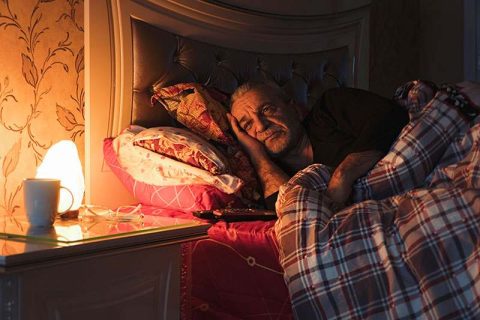January 23, 2024 by

Everyone understands the feeling of trying every trick in the book to get to sleep after a long day. As we age, it can be even more difficult to get enough sleep. Older adults may experience changes in their sleep architecture, including lighter sleep, more frequent awakenings, and a shift towards earlier bedtimes. Yet maintaining healthy sleep patterns is vitally important for cognitive function, emotional health, and physical vitality.
What Factors Can Influence Sleep Patterns in Older Adults?
There are many factors impacting senior sleep, including:
- Medications: Certain medications may have side effects that disrupt sleep patterns.
- Health Conditions: Arthritis, chronic pain, and respiratory issues can contribute to discomfort during the night.
- Circadian Rhythm Changes: Aging can alter the body’s internal clock, leading to a preference for earlier bed and wake times.
- Environmental Factors: Light, noise, and temperature can affect sleep quality.
So, How Can You Help a Senior Loved One Sleep Better?
- A Comfortable Sleep Environment: Make sure their pillows and mattress are supportive and comfortable. Consider soft, breathable bedding materials, and if applicable, invest in sleep-inducing scents or a white noise machine to create an optimal atmosphere for relaxation.
- A Consistent Routine: Encouraging a regular sleep routine is vital for seniors. Beyond adhering to consistent bedtimes and wake-up times, consider incorporating calming pre-sleep rituals. This could include activities like reading a book, listening to soothing music, or practicing gentle meditation to signal to the body that it’s time to wind down.
- Mindful Eating: Specific foods promote sleep, such as those rich in tryptophan or magnesium. Additionally, herbal teas are known for their calming properties. Offer practical tips on portion control and timing to maximize the positive impact of nutrition on sleep.
- Regular Exercise: Exercise is important, but just as important is the timing of physical activity. Engaging in exercise earlier in the day can contribute to better sleep. Encourage activities that the person will enjoy, whether it’s a morning walk, light yoga, or gardening, fostering a healthy routine that aligns with their preferences.
- Relaxation Techniques: There are a variety of relaxation techniques that seniors can incorporate into their pre-sleep routine, such as mindfulness exercises, deep breathing, and gentle stretching routines. There are both mental and physical benefits of relaxation practices in preparing the body and mind for a restful night’s sleep.
- Limited Naps: Though there are benefits to short naps, longer naps, especially later in the day, can make it harder to fall and stay asleep at night. Emphasize the importance of brief, rejuvenating naps while cautioning against extended daytime sleep, which could disrupt the natural sleep-wake cycle.
Our caregivers are helping older adults in our community stay active and engaged, eat healthier, and enjoy calming routines that foster better sleep habits. Contact us online or at (315) 579-HOME (4663) to find out how we can help someone you love in Syracuse, Camillus, Clay, or the surrounding areas.
